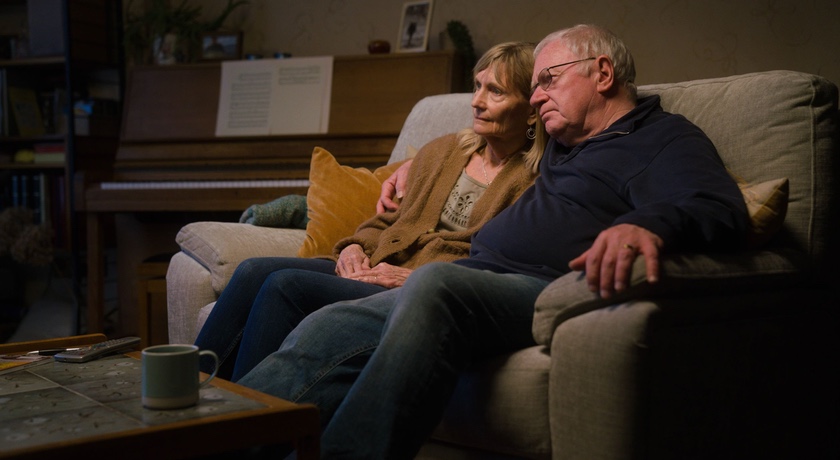Over 60% of people with dementia in Wales battle symptoms for a year before being diagnosed

More than 60 per cent of people with dementia symptoms in Wales lived with the condition for more than a year before getting a diagnosis.
A survey of more than 1,000 people carried out by Alzheimer’s Society also found that 10 per cent of people waited more than two years from the point of first noticing the symptoms.
The figures, released to mark Dementia Action Week (16-22 May), also found that 42 per cent of respondents assumed the symptoms were just part of getting old, leading to a delay in accessing treatment, care and support.
In a bid to tackle the problem, Alzheimer’s Society has launched a new campaign – ‘It’s not called getting old, it’s called getting ill’ – to encourage people worried about their own or their loved ones’ memory to seek support in getting a diagnosis.
The charity has worked closely with leading clinicians to make the diagnosis process easier, developing a new ‘symptoms checklist’, available on their new online hub, highlighting changes that might be due to dementia.
Cheryl James, Area Manager for Alzheimer’s Society Cymru said: “Asking the same question over and over again is not called getting old, it’s called getting ill. If you’re worried for yourself or someone you love, take the first step this Dementia Action Week – come to Alzheimer’s Society for support.
“Yes, getting a diagnosis can be daunting, but it is worth it. More than nine in 10 people with dementia told us they benefited from getting a diagnosis – it gave them crucial access to treatment, care and support, and precious time to plan for the future.
“With the pandemic causing diagnosis rates to plunge, it’s more important than ever to seek help. You don’t have to face dementia alone, we’re here to support everyone affected.”
Alzheimer’s Society’s survey also revealed that almost a quarter (20 per cent) of those who were diagnosed after two years only sought a diagnosis because they had reached a crisis point – with all of them struggling to look after themselves, over half finding it too difficult to cope and a third having an accident before they sought help.
There are 900,000 people living with dementia in the UK, including almost 50,000 in Wales.
More than 200,000 people will develop dementia this year, the equivalent of one person every three minutes. But with diagnosis rates at a five-year low, tens of thousands of people are now living with undiagnosed dementia without access to the vital care and support that a diagnosis can bring.
Nigel Hullah (68) who lives in Swansea, struggled for four years to get a diagnosis and has a rare form of dementia, prior to this Nigel worked as a human rights lawyer.
“A timely diagnosis helps you make sense of your situation,” explained Nigel.
“You gain access to information, resources and support for yourself and those close to you. The benefits include knowledge of the available therapies that improve and maximise, your cognitive skills and abilities.
A diagnosis helps you explain your situation to your family, friends and colleagues, so they know what has changed in your life and can help you plan for the future and to maximise your quality of life”
Alzheimer’s Society conducted a separate public poll which found a lack of knowledge about dementia symptoms and fear, are also significant barriers to seeking help, with (24 per cent) in [Wales] admitting they would not recognise the symptoms of dementia, and (20 per cent) saying they would not go to the GP for a diagnosis because they were scared.
Family and friends play a big role in helping people recognise the onset of dementia symptoms, but worryingly, (41 per cent) in Wales confessed they would feel uncomfortable raising concerns with a loved one if they were showing symptoms.
The charity’s most recent research has also revealed that denial played another factor for why people put off seeking a diagnosis for over two years, with over a third (32 per cent) across the UK saying they were in denial about their symptoms, or they did not want to get a diagnosis.
Dr Jill Rasmussen, the Clinical Representative for Dementia at the Royal College of General Practitioners, said: “It’s vital for patients, their families and GPs that conversations with the potential for a diagnosis of dementia are timely and effective.
“The new checklist developed with Alzheimer’s Society is a simple, free tool to help patients and their families clearly communicate their symptoms and concerns during an often time-pressured appointment.
“This resource could make a real difference in identifying those people who require referral for a more detailed evaluation and diagnosis of their problems.
“We’re asking anyone who is worried about possible dementia symptoms to use the checklist and share it with their primary care team”.
This Dementia Action Week, Alzheimer’s Society is urging anyone worried about themselves or someone they love to take the first step and contact the charity for support. Support and more information about a diagnosis is just a phone call or a click away. Visit alzheimers.org.uk/memoryloss or call 0333 150 3456 (for Welsh language support call 0330 094 7400).
Spotted something? Got a story? Email: [email protected]
Latest News
